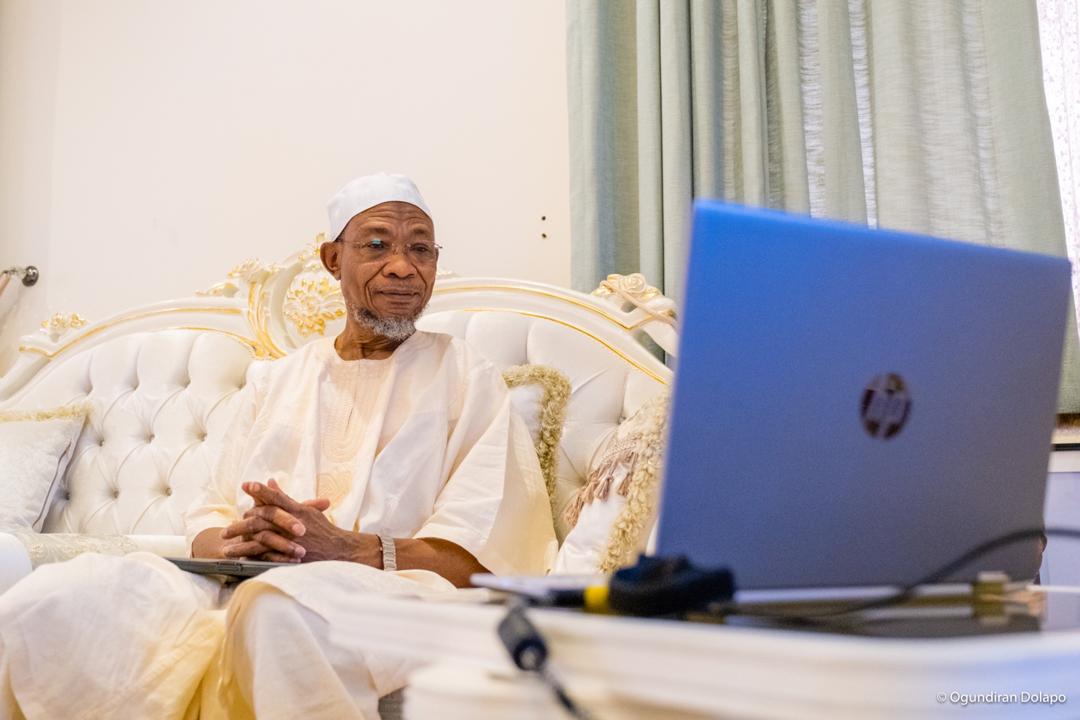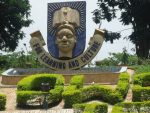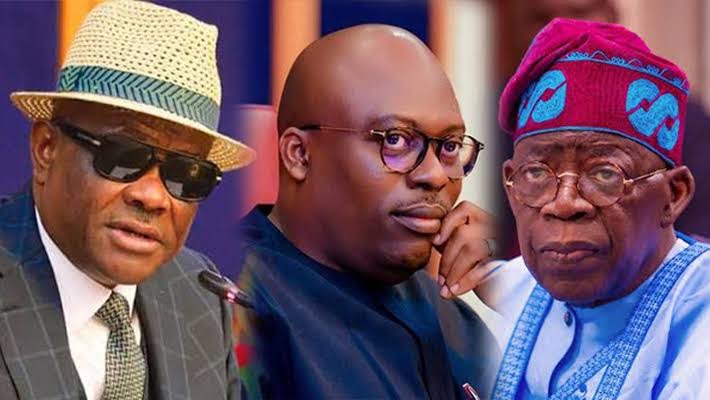By Ismaeel Uthman
An Israeli historian and Professor of History at the Hebrew University of Jerusalem, Yuval Noah Harari raised posers on the adaptability of humanity to the changes brought to our lifestyle by the Coronavirus pandemic. In his article, ‘The World After Coronavirus’, Harari said: “When choosing between alternatives, we should ask ourselves not only how to overcome the immediate threat, but also what kind of world we will inhabit once the storm passes. Yes, the storm will pass, humankind will survive, most of us will still be alive — but we will inhabit a different world.”
COVID-19 is reshaping our social and education way of life to conform to safety measures in managing the global health emergency. The embargo placed on public gathering has forced humanity to embrace alternative modes of public discourse and social function. Social media applications have become so efficient and helpful in connecting people that had been respecting on social and physical distance as a result of the pandemic. Webinar, a live presentation, lecture or workshop that happens in real time, as users participate through text base chat, voice, video, or file sharing conducted via the worldwide web, has become popular and readily available as a technical means of holding public discourse and meetings.
The webinar became known to a large number of people, as it became the means through which the 63rd birthday of Nigeria’s Minister of Interior, Ogbeni Rauf Aregbesola was celebrated. Aregbesola, whose birthday had years remained a socio-political event, clocked 63 on May 25, 2020. There had been worries from admirers of the former governor of the State of Osun on the feasibility of organizing a befitting birthday for him, in place of the usual Raufnomics (a yearly colloquium) amidst the Coronavirus pandemic.
Two separate webinar was organised for the Minister’s birthday. The first virtual birthday colloquium was themed ‘Leadership in Emergencies: Planning as Foundation for National Survival’. It was organized by Proumou Media Consulting, a Lagos-based media strategy firm on May 25. The Rauf Aregbesola Colloquium 2020, an intellectual discourse on workable solutions using the bottom-up model to deliver mass Prosperity for Nigerians was also held via ZOOM Webinar on Saturday 30th May. It was titled: “Government Unusual – Innovative Economic Solutions to unlock Mass Prosperity”. The webinar was classical, elitist and of international standard. The virtual colloquiums were loud and raised the bar of Aregbesola’s popularity, acceptability, love and support among the people.
The colloquium had Governor Nasir El-Rufai of Kaduna State, Mr. Yemi Cardoso, Chairman, Citibank Nigeria, Dr. Yemi Kale, Statistician-General /CEO NBS, Mr. Bismarck Rewane, CEO Financial Derivatives Ltd, Mrs Hajarah Adeola, CEO Lotus Capital, Dr. Joe Abah, Country Director, DAI and Governor Abubakar Bagudu of Kebbi State as discussants. The programme was aimed at exploring practical solutions and models to deliver mass prosperity from experts, practitioners and veterans.
However, the political but factual remarks made by El-Rufai on Aregbesola and his eight years administration in the State of Osun dominated the public discussions on the event. Majority of the participants at the virtual colloquium and social media users from both the All Progressives Congress (APC) and the Peoples Democratic Party (PDP) were so much interested in El-Rufai’s remarks than other discussions and objectives of the colloquium.
The Kaduna State governor had remarked: “The basis of my friendship and relationship with Rauf is because l found out that he is a socialist with a good heart. I got closer to him when l went to monitor his reelection in 2014 and saw quality school buildings, busy youths on roads sweeping and constructing drainages which made that state the safest in the country under him as the governor.
“His passion and concern about the faith of vulnerable is legendary. This is a Governor that has long distributed ICT tablets to public schools in his state before some of us started struggling to replicate same in our various states.
“He started free feeding programme for public school students with huge value chains of cooks and sellers of food produces which l copied for Kaduna state students. I had to send officials from Kaduna to understudy his style and system of governance. And l spent some time with him for tutorials.”
Delivering his lecture on ‘Osun State Macroeconomic Facts’, Rewane stated that the Internally-Generated Revenue has grown by 201.8% from N8.88bn in 2016 to N17.92bn in 2019, adding that ranked lowest in the United Nation Multi-Dimensional Poverty Index in 2016 with 6.2%. Rewane affirmed the report of the National Bureau of Statistic that placed the state on the 3rd lowest poverty headcount rate in 2019 by 8.52%, well below the national average of 40.09%. In Human Development, Rewane recalled the report of the UN’s Human Development Index (2016) which ranked Osun 14th position with 51.23% against the 49.38% in 2013, while the Gross Domestic Product size of the state increased from N986.18bn in 2013 to N1.47trn in 2017.
Osun, according to Rewane has the lowest unemployment rate in Nigeria with 10.1% and 24.7% unemployment. The financial expert concluded that Osun is one of the states with the lowest poverty, unemployment rate and misery index, adding that the state also has one of the highest WAEC pass rates. “Osun State still underperforms its peers in the South West in terms of GDP and IGR. There is a need for public finance reform. The state also needs to maximize its potential in the production of commodities in which it has a comparative advantage”, said Rewane.
In her lecture, Hajia Hajara Adeola, who spoke on “Innovative infrastructure Financing Opportunities and Solutions”, stated that the pandemic has exposed the poor state of infrastructure in Nigeria with 39.7 % in quality of infrastructure in Sub-Saharan Africa, compared to South Africa’s 68.1%, Botswana’s 53.5%, Kenya’s 53.6%, Rwanda’s 49.1% and Ghana’s 46.6 %. Infrastructure development is a proven way to achieve sustainable prosperity, said Adeola who stressed that Financing and Accountability have proven to be key challenges with infrastructure provision evidenced by the spate of abandoned projects across key sectors. She maintained that public revenues and traditional means of financing infrastructure have proven insufficient and inefficient.
Speaking on “Development Solutions to Deliver Mass Prosperity, Optimizing the Public Service”, Dr Joe Abah, Country Director, DAI, said Africa requires between an incremental $200 billion and $1.2 trillion per annum for the Sustainable Development Goals to be achieved, adding that their attention needed to be concentrated on basic infrastructure, food security, health and education. He maintained that the main difference between rich and poor countries is ‘productive capacity’, saying richer countries simply produce more. “Without high productive capacity, you will not have the means to improve health, education, infrastructure, per-capita income and social welfare. There is a need to raise productive capacity by raising GDP per -capita and GDP per worker”, he said.
Abah opined that restructuring of the country is imperative to reduce cost of governance, just as he called for more fight against corruption and waste. He stated that improving efficiency through technology, linking budgets and funding to productivity and the courage to implement the Oronsaye report would help in reducing the cost of governance.
The Chairman, Citibank Nigeria, Yemi Cardoso who spoke on “Bold Innovative Financing and Economic Solutions and Opportunities” said there is need to liberate people from their societal economic constraints to allow a high growth in economy and for the people to flourish. He stated that the people must be liberated for ‘protection of basic property rights and rejection of regulations and tax rates that thwart free enterprise.’ He said: “It is important for Nigeria to develop an innovative framework to align its growth strategy with its changing factor endowments. We need to evaluate our comparative advantage over time; Produce a roadmap with key elements of a strategy for Nigeria to return to faster more sustainable and more inclusive growth that is consistent with its comparative advantage. Nigeria has a comparative advantage with petrochemicals. We can look at producing consumer electronics.”
Dr. Yemi Kale who discussed on “Insights From Performance of States, Key Drivers”, said: “Nigeria remains Africa’s largest economy, but per-capita income is rather low for a country of this size, and the level of poverty presents a major development challenge. Three solutions are proposed to address poverty from the state level: address unemployment, increase formalization of the informal sector and design appropriate tax systems to extract revenue from economic activities.” He added that the contribution of education and family size to poverty reduction represents an important opportunity for policymakers to fast-track poverty reduction.
The Statistician-General of the Federation / CEO of National Bureau of Statistics maintained that poverty is a clear factor of industrialization (productivity) and population, regional disparities notwithstanding, adding that Nigeria has the lowest poverty line, and the lowest GDP per-capita, even though it is the largest economy in Africa. “Nigerians at the poverty line spend almost 3 times as much on food as they do on non-food essential items, significantly different from counterparts in South Africa and in Egypt – an indication of agricultural productivity, and reliance on food imports and the impact on prices”, he said.
A communiqué was issued at the end of the colloquium and it was recommended that: “The intensive and extensive discussions by panelists at the colloquium birthed a number of suggestions which, if implemented across board, will create a paradigm shift in the development of our states and nation as a whole. Government, at all levels, must widen the tax net and invest in tax collection, develop greater capacity for public-private partnership, each state to focus on its competitive advantage and raise productive capacity, reduce the cost of governance and cut waste, invest in the public sector and tie the investment to productivity.”
In his address, Aregbesola said he was motivated by the people to do the needful for societal development and enhancement of the living standard of the people. He said: My motivation primarily was the people. Right from my teenage age, I have had this commitment to be a part of a process that will lighten the burden of the people. I couldn’t stand poverty and the misery associated to it. Early in life, I had known that government particularly in the west borders more about satisfaction of minority which are the elite, disregarding the majority and that was brought here during colonialism. I simply reversed it and attended to the majority, while I didn’t neglect the minority. If there was a risk, then the risk was in that motivation which was directed at meeting the needs of the majority and encouraging them to discover themselves while using them as a tool to develop the economy of the state.”










